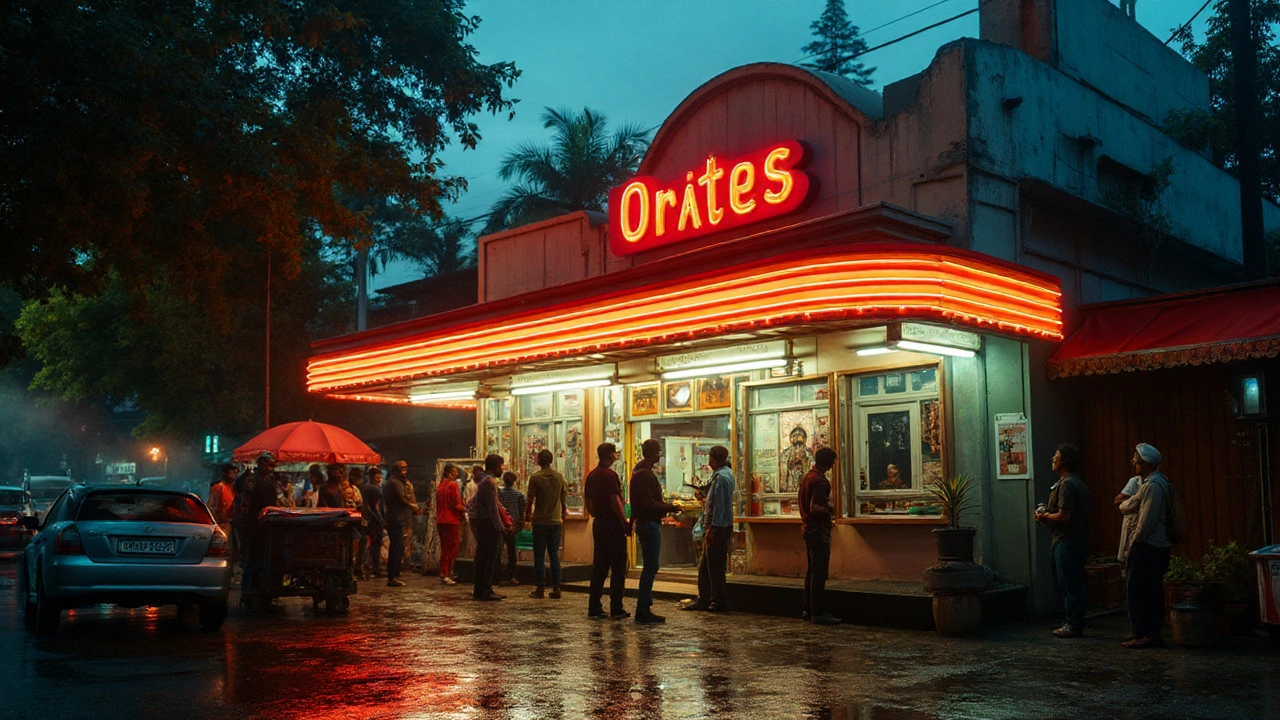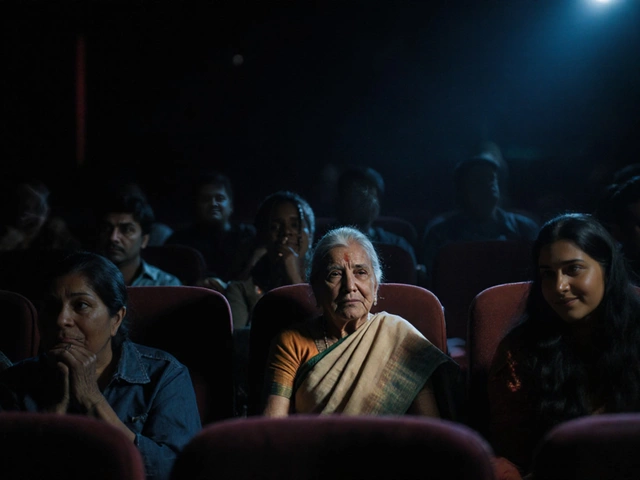You clicked to settle a simple question: did Hollywood ever remake a Bollywood film? Short answer: yes-but it’s rare, and the internet muddles facts with rumors. If you only want the name you came for, you’ll get it right away. If you want to go deeper, I’ll also show you how to quickly verify any remake claim, and I’ll bust a few myths that keep doing the rounds.
- Hollywood remake of a Bollywood film: A Common Man (2013), an official English-language remake of A Wednesday! (2008).
- It credits “Based on the film A Wednesday! by Neeraj Pandey” in the opening titles; trade outlets like Variety and The Hollywood Reporter reported the remake during production.
- Many titles people cite are not remakes-they share ideas, or both adapt the same older source. I’ll show you a quick test to tell the difference.
- As of 2025, no major new Hollywood remakes of Bollywood films have released; most remakes still flow the other way.
The direct answer, with proof: A Common Man is a remake of A Wednesday!
If you’re looking for a concrete, credited Hollywood/English-language remake of a Bollywood movie, this is the cleanest example:
The original: A Wednesday! (2008), written and directed by Neeraj Pandey, produced by Friday Filmworks/Anjum Rizvi/Shital Bhatia. Cast: Naseeruddin Shah, Anupam Kher. A tight, 100-minute thriller set in Mumbai about an unnamed citizen who calls the police with a chilling ultimatum and a ticking clock. The film won strong reviews and became a modern Hindi classic.
The remake: A Common Man (2013), directed by Chandran Rutnam, starring Ben Kingsley and Ben Cross, shot largely in Colombo. It’s an English-language adaptation that keeps the core premise-and crucially, it formally credits the Hindi original. You can see the line “Based on the film A Wednesday! by Neeraj Pandey” right in the credits. That’s your irrefutable signal you’re dealing with a licensed remake, not a loose homage.
Proof points you can independently check:
- On-screen credits list Neeraj Pandey (story) and the original film title-this is the legal heart of a remake.
- Trade coverage: Variety and The Hollywood Reporter did production notes in 2012 mentioning it as an official remake of A Wednesday! (these outlets cover rights deals and crediting norms).
- Festival trail: A Common Man won awards at the Madrid International Film Festival (2013), where press materials again described it as a remake of the Hindi thriller.
How close is the remake? Very close in structure. The chess match between the caller and the police chief remains intact. Names, city, and some logistics shift to fit the new setting and cast, but the ethical sting in the tail-what the film says about institutional apathy and citizen rage-survives the move. If you loved the original’s clockwork plotting, the remake follows the same route.
Why this example matters: The internet is littered with claims that “Hollywood copied Bollywood” or vice versa. Most of those claims fall apart under basic checks. A Common Man stands out because it is contractually clean, publicly reported, and clearly credited. It’s the answer you can give with a straight face and receipts.

How to verify a remake claim in 2 minutes (and common myths)
Want a quick way to cut through rumors? Use this simple flow when someone says, “Hollywood remade a Bollywood film.”
- Check the credits card. Does the newer film show “Based on” or “Remake of” and name the Hindi film or its writer/producer? If yes, it’s a remake. If no, proceed to step 2.
- Search trade coverage. Look for reporting in Variety, The Hollywood Reporter, Deadline, Screen International, or India’s trade press (Film Information, Bollywood Hungama). Rights deals are news; they get covered. If trades confirm rights were acquired, that’s your green light.
- Confirm the writing credits. A licensed remake usually credits the original writer or assigns “story by” with the original title. Databases like IMDb reflect this, but the film’s actual titles card is the primary source.
- Check for a shared source. Are both films based on an older novel, play, or earlier film? If yes, they’re siblings, not remakes of each other.
- Compare narrative DNA, not just a scene. A single similar scene doesn’t prove a remake. Plot structure, character arcs, and key reveals should line up if it’s truly a remake.
Use this checklist as your fast filter:
- Named credit to the original on-screen? → Likely an official remake.
- Trades report a rights deal? → Strong indicator.
- Same source material (book/play) for both? → Not a remake of each other.
- Only vibe or a trope matches? → Probably a coincidence or influence, not a remake.
Now, let’s clear up the most-cited “remakes” that aren’t.
Claim: Fear (1996) is a remake of Darr (1993). The two share the obsessive-stalker setup, but there’s no rights trail, no credits, and the tone diverges. Darr is a romantic-thriller with a specific cultural lens; Fear is a domestic thriller. Similar premise ≠ remake. No trade outlet reported a rights acquisition from Yash Raj Films to Universal/Imagine for Fear.
Claim: Just Go with It (2011) remade Maine Pyaar Kyun Kiya? (2005). Both stem from the same American source: the 1969 film Cactus Flower (itself adapted from a Broadway play). Maine Pyaar Kyun Kiya? is a Hindi remake of that American classic; Just Go with It is a modern US redo of the same original. Neither remade the other.
Claim: Leap Year (2010) remade Jab We Met (2007). The overlap is a cheerful, opposites-attract road trip. But structure, character goals, and key beats don’t map one-to-one, and there’s no credit or rights news. These are parallel uses of a rom-com template.
Claim: Kill Bill borrowed from Aalavandhan/Abhay (2001). Quentin Tarantino has praised Aalavandhan’s animated violence as striking, and Indian media often cite that admiration. But Kill Bill is not a remake of any Indian film; it’s Tarantino’s genre mash-up pulling from Asian cinema, westerns, and grindhouse DNA. Influence is not the same as adaptation.
Claim: The Departed (2006) remade a Hindi film. It’s an official remake of Hong Kong’s Infernal Affairs (2002), as the credits and global press made crystal clear. Bollywood later remixed the undercover-cop trope in several films, but the Hollywood remake line runs Hong Kong → Boston, not Mumbai → Boston.
Why do these myths persist? Two reasons: first, stories travel through universal tropes (stalker romances, road-trip meet-cutes, undercover cops). Second, social media compresses nuance-“similar” becomes “copied” in one swipe. The easy fix: always look for credits and trade coverage.
One more nuance: what counts as “Hollywood”? If you define it as “English-language and Western production/distribution,” then A Common Man qualifies as the clear example, even though it wasn’t a major US studio tentpole. If you mean “US studio system,” the pipeline is thinner-but still possible if rights are bought and credited.
For context, the flow the other way is busy. Bollywood regularly licenses and remakes Hollywood and international hits (Knight and Day → Bang Bang!, Warrior → Brothers, Forrest Gump → Laal Singh Chaddha). That’s why the rare Bollywood-to-Hollywood case draws attention-it’s news precisely because it’s uncommon.

Examples, quick references, and your mini‑FAQ
Verified Bollywood → Hollywood/English-language remake
- A Common Man (2013) - English-language remake of A Wednesday! (2008). Director: Chandran Rutnam. Cast: Ben Kingsley, Ben Cross. Publicly credited to Neeraj Pandey’s original story. Covered by Variety/The Hollywood Reporter; festival materials and the opening titles confirm the remake status.
Often cited online, but not official remakes
- Fear (1996) vs Darr (1993) - Similar trope, different lineage. No rights credits.
- Just Go with It (2011) vs Maine Pyaar Kyun Kiya? (2005) - Both adapt the American Cactus Flower; neither remade the other.
- Leap Year (2010) vs Jab We Met (2007) - Rom‑com parallels; no shared credits or trade-reported deal.
- Kill Bill (2003-04) vs Aalavandhan/Abhay (2001) - Admiration/influence noted in interviews and festival chatter; not a remake.
How to do your own due diligence (fast)
- Open the film and watch the first 90 seconds of the titles card. Look for “Based on” or “Remake of” language with the Hindi title or creator named.
- Search Variety / The Hollywood Reporter / Deadline for “[Film Title] rights remake” or “[Hindi Title] remake Hollywood”. If it happened, these outlets almost always note it.
- Check the writing credits shown on-screen. If the original writer is credited for “story” or “characters,” that’s a major tell.
- If credits are silent and trades are silent, assume inspiration or coincidence until proven otherwise.
Mini‑FAQ
Q: So, which Hollywood movie is a remake of a Bollywood movie?
A: A Common Man (2013), a credited English-language remake of the 2008 Hindi thriller A Wednesday!
Q: Are there any other confirmed cases?
A: None at the same level of clear, on-screen crediting and trade-confirmed rights as of September 2025. You will see plenty of “inspired by” claims, but without credits or rights deals they don’t qualify as remakes.
Q: Do co-productions with Indian talent count?
A: Only if they credit a specific Hindi film or writer as the source. Otherwise, they’re originals or adaptations of non-Indian sources.
Q: Why doesn’t Hollywood remake more Bollywood films?
A: Two practical reasons. First, language and cultural humor sometimes lose bite in translation; studios prefer betting on domestic IP or proven global titles. Second, Bollywood often already adapts popular Western IP, so Hollywood may license original non-Indian sources rather than a Hindi adaptation of those sources.
Q: How do I spot a shared source vs a remake?
A: If both films credit the same older book, play, or earlier movie, they’re parallel adaptations. Only one film naming the other (or its creator) as the source signals a remake.
Q: Is A Common Man a US studio production?
A: It’s an English-language international production with global distribution, not a big US studio tentpole. But by the common-sense definition-Hollywood equals English-language global market-it qualifies for the answer you’re seeking.
Q: Where can I see the original credit?
A: In A Common Man’s opening titles. It states it’s based on A Wednesday! by Neeraj Pandey. That’s the most authoritative proof because it’s the legal acknowledgment on the film itself.
Q: Has Hollywood announced any upcoming remakes of recent Bollywood hits?
A: As of 2025, no widely reported, fully financed US studio remakes of Hindi hits are on the release slate. Announcements do get floated, but many projects stall before production. Follow Variety/THR/Deadline for the only updates that matter.
Quick cheat‑sheet
- Answer you can trust: A Common Man remade A Wednesday!.
- Proof you can cite: opening credits + Variety/THR coverage + festival notes.
- Red flags: no on-screen credit, no rights news, only vibes/plot tropes match.
- Common confusion: both films adapt the same older American source (e.g., Cactus Flower) → not remakes of each other.
Next steps
- For casual fans: Watch A Wednesday! first-it’s tighter and packs the original punch. Then sample A Common Man to see how the beats translate in English.
- For students/researchers: Screenshot the credits of A Common Man, note the exact wording, and cite trade coverage (Variety/THR publication dates) in your paper for a clean reference trail.
- For journalists/creators: When you see a remake rumor, do a 3‑step sweep: credits → trades → original creators’ statements. If you can’t confirm in 10 minutes, frame it as “influence” not “remake.”
- For industry watchers: Track option announcements and remake rights in trades, and watch WGA credit listings as projects enter production. The first place a real remake shows up is in rights news and contracts, not on social media.
If you were hunting for one precise name to answer the question, you’ve got it. If you needed a simple system to separate remakes from rumors, you’ve got that too. And when the next flashy tweet claims “Hollywood copied Bollywood,” you’ll know exactly where to look before you hit retweet.






Post A Comment